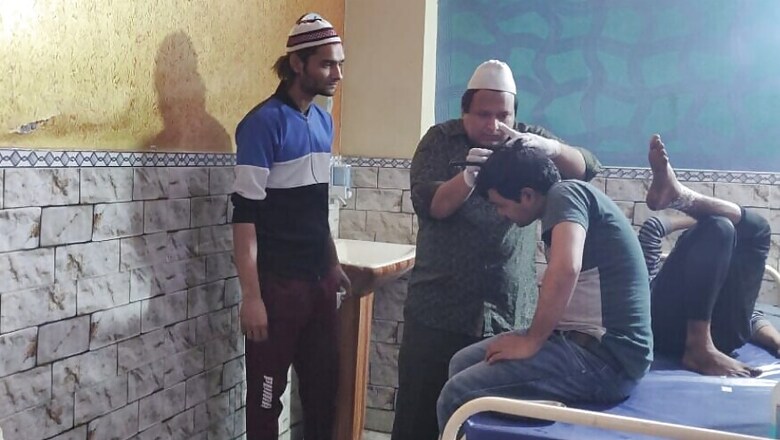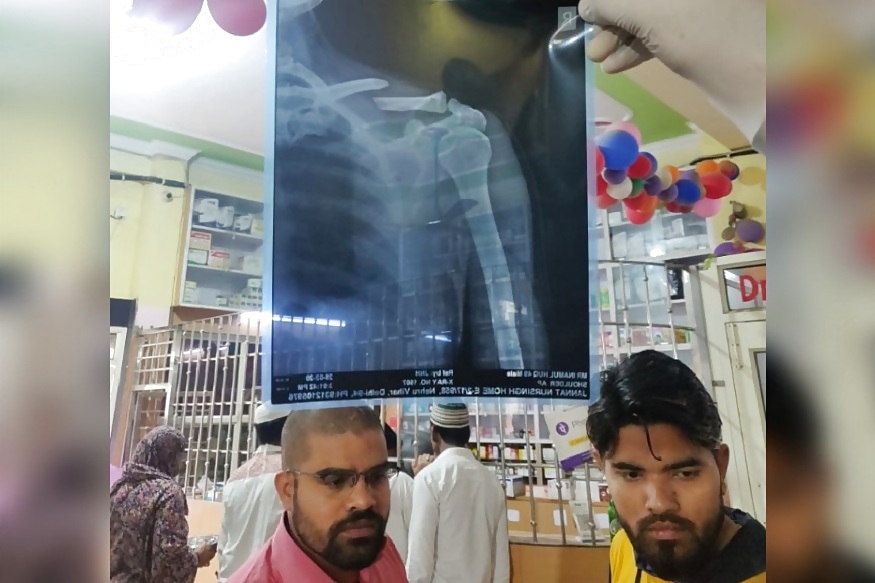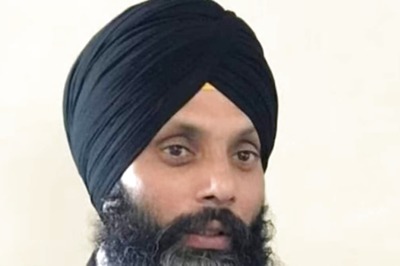
views
It was 12 in the afternoon on February 24. Mohd Shahzaad, a barber, had just finished giving the latest ‘mohawk-style’ haircut to a 17-year-old boy when a doctor called him on his mobile from the nearby Al Hind Hospital.
Located adjacent to the hospital in Old Mustafabad, Shahzaad’s barber shop was also bang opposite another small salon, owned by Wasim, his protégé.
The duo had been called to help with dressings and run small errands for the hospital before. But what met them on Monday afternoon when they arrived at Al Hind was beyond their imagination.
When sectarian violence broke out in several northeast Delhi neighbourhoods on Sunday night, including Mustafabad, Al Hind was the only hospital that remained open in the area and provided critical first aid and conducted surgeries on victims affected by the riots.
“There were a handful of patients with head and other injuries. We knew there were disturbances since Sunday night but we didn't realise how bad it was until we reached Al Hind," Shahzaad, 25, told News18 inside his barber shop a week after the incident.
The barber-duo initially started by shaving hair off injured persons and getting them ready for surgeries or further treatment.
“The first man we shaved was a Mustafabad local who had been hit multiple times on the head with a rod,” Wasim recalled. It was the bloodiest haircut Wasim or Shahzaad had ever given.
“We cleaned him up and sheared his head. The poor man had been on his way to Chand Bagh to meet his wife when he was attacked,” Wasim said, adding he will never forget that first haircut. However, after that, the people became a blur.

Mohd Shahzaad [right] with Dr Meraj Ekram at the Al Hind Hospital. (Image credit: Rakhi Bose)
As the day wore on and the volume of patients increased exponentially, the two men started giving first aid to all who came and dressed their wounds.
After all, with just three doctors and two nurses and a handful of additional staff to clean and run the pharmacy, the hospital was severely understaffed.
Shahzaad had dressed wounds at home before, as had Wasim, who often needed to take care of his own varicose vein-related wounds and injuries. “Even if we didn’t, we would have learnt it in an hour. It was about humanity,” Shahzaad said.
Things started to get too real on Monday night when the first gunshot victim was brought in and Wasim said it was then that the two men, who had grown up together in the erstwhile peaceful neighbourhood, started to feel scared.
“We trained the boys to do basic dressing of wounds, first-aid and CPR (cardiopulmonary resuscitation). They were eager to help. They assisted us in saving many lives,” said Dr Meraj Ekram, a dentist and one of the three brothers who run the hospital.
Dr Ekram, who has not left the hospital since February 24, said over 500 victims of violence have been treated at the facility till now.
“We treated every riot victim at no cost and gave away medicines for free,” he said, adding medicines worth at least Rs 2 lakh have been given away without any money in the last one week. “Such times are not for profit or loss. People were dying,” the doctor said.
A numbers of pharmacies also opened up their doors, albeit discreetly. Though all shops in Mustafabad have kept their shutters down Sunday night onwards, doctors relied on locals like Shahzaad and Wasim to procure provisions locally from these ‘shut’ medical stores.
According to the doctor as well as locals, ambulances only started reaching the area on Wednesday when the riots started to thaw. “We did what we could with our limited staff and resources. Had ambulances come on time, we could have saved more lives,” said Dr MA Anwar, the head physician and Director of Al Hind.
Wasim, whose varicose veins had acted up after standing for nearly three days at a stretch, told News18 on the phone now that the ordeal was over, he was thinking of taking up a course in medicine.
“It felt good to save lives,” he said. Shahzaad, his “ustad” (teacher) in the art of haircutting, was content with being a barber for life.
“It was the prowess in my fingers and my dedication to the art that helped me maintain focus and precision and shave all those injured heads. I could never have done it otherwise,” Shahzaad said.
A week after the clashes, life in the Muslim-dominated Mustafabad has started to limp back to normalcy. Patients coming to Al Hind are now mostly affected by ‘ordinary’ illnesses, though signs of the freshly bygone violence hang in the air like the smell of disinfectant and blood.




















Comments
0 comment